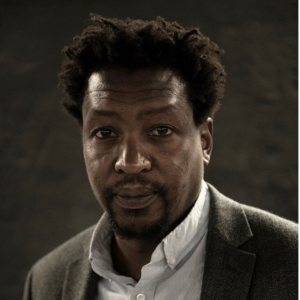
You broke up on Saturday, when the sun had just come up. He wore blue trousers and a shirt pressed against his chest. You spotted the tie and knew something was terribly wrong.
It’d been one week since he donned the tie. He’d crashed into your weekend and said, in his flattest voice, “Yemisi had a heart attack.” His face had been drained of emotion, as though Yemisi were a character from Naija Stories and not his sister.
He was standing akimbo when you pulled the door a few inches back. His eyes danced beyond you as if expecting your father to appear with a baseball stick. He kept that posture for a minute—upper arm at an odd angle with the lower arm, eyes unsettled.
“I’m sorry,” he said, finally, and you knew what would succeed it. “I have to break up with you.”
The shock lasted four seconds, the time it took for the words to spill out. His eyes lingered on you, anticipating a rage, eager for an outburst, a curse, something. You did nothing. You were incapable of such in that instant.
He turned and crept down the stairs, his pace even, your ears taking in his footfall. You noticed that his shoes were polished, that his black backpack jutted out against his torso. You watched as he logged out with the porter, mumbled a handful of words, nodded once, and disappeared past the hostel’s gate.
You let the door close.
*
You did not think about it, about him, all through the weekend, so seeing him Monday morning made your breath go bitter. You survived the weekend by deleting him, reminding yourself that it was a delusion, but the same action had wiped from your memory the fact that you both had CHE 301 in the lab, the same lab you first met.
You were freshmen then. You had to sign triplicate course forms. He was at the rear end of the slab, fiddling with a folder, when you walked in. There were two others present, but you shot straight for him.
He didn’t know much about the registration, he told you, eyes wandering. The unsteadiness in his eyeballs made you wonder if social interaction was his worst fear.
After that day, you didn’t see for a month, didn’t talk for two. The day the spark ignited, you had a test. It was hot as usual, and he was dabbing a square towel across his cheeks when you approached him.
“Hi.”
“Hello,” he said, and continued to mutter.
“I need your help,” you said, and studied his reaction. You misplaced a friend’s phone, you informed him. Could he help you purchase a fairly used one at his hostel?
He smiled. He didn’t call you ignoramus like your roommates. “Offering to keep someone’s phone at an exam center is foolishness,” they’d said.
“I’ll work on it,” he said, smiling again.
Three calls and nine days later, he came to your hostel, waited under a low tree. You showered and pulled on black stretchy pants, topped with a button-down shirt. Two hours later, you walked with him to your hostel, your heart doing spins on a candlestick. When he announced his departure, you leaned in and gave a side hug. His face suppressed blush, dark eyes smiling in the early moonlight.
*
In year two, you grew serious. He brought gifts. Your friends cheered you on. You tackled calculus under the low tree and stole kisses. No sex, he said, and you agreed. You even rocked your NO SUM shirts as a check. “Besides,” you’d say, “God would not be too happy.” He’d nod and ask when you both would take Jesus serious.
“A week before our wedding,” you’d say.
You agreed to a lot of things—how it was wrong for the man to go shopping while the wife slept, how the man should earn, no matter what.
He hated ties and was wide-mouthed the morning you presented him a white one for his birthday. He liked the square dots on the tie, he said, and he kissed you, his lips a blend of honey and curry.
In the last weeks of year two, he stopped holding your hands. You noticed but kept silent.
During the breaks, your texts and chats ran like a stream. When he called, he produced giggles effortlessly from your mouth. His mum spoke to you once.
“What are you doing to curb pregnancy?” she’d asked.
Your breath flew out the window. You plucked the phone off your ear and stared at the seconds ticking on the screen. Your throat suddenly felt parched, as if you’d been punched in the neck with truth serum and were being asked to confess to an affair with your brother-in-law while your sister watched on.
“Hmmm?” was your dumb reply.
His mum had laughed and called it ‘a joke’ and you hoped it was that.
You left for school the same day. He met you at Berger and asked how Abeokuta was. Not different from Lagos, you said. In the bus, you exchanged papers. He wanted twins, he’d written in cursive fonts. A boy and a girl, as you also desired. You looked at him and he looked at you, and your eyelids thickened. He clasped his fingers around your wrist and stroked your skin, as if hunting for a vein. You let the tears roll and fell asleep against him, your head against his shirt, assured and overwhelmed with gratitude that you’d found your perfect partner.
*
He stopped you after class, when the lab had emptied.
“I should explain.”
You would have struck him then, but you caught your lecturer’s gaze, his glasses set upon his nose as he prepared to watch. You walked away.
You didn’t mention it to your girlfriends, and when Tosin queried his sudden absence, you blamed it on the new session. She shrugged, flopped unto the bed. Tears pooled in your eyes and you swallowed, busying yourself with your calendar. You wondered if all women felt heartbreak this way, if Yemisi had endured a similar phase when her husband ran away. He called the next day. You tapped the green ‘receive’ button before you knew.
“Debbie, I need to see you.”
You knew from his voice that it wasn’t about the breakup. Something bad had happened. He was waiting at Sports. Two departments had just ended a football match and were dispersing. He raised his head at your footsteps and you froze. His eyes were bloodshot, like they’d been pulled from the sockets, dyed red, then inserted again. He harrumphed and shifted. You sat beside him and stared at the field, at the pale grasses screaming of pain. Pain from the boots of those players. Their salient cries reached you and you looked away, at him.
“Yemisi is dead,” he said, the words coming out in a monotone, as if he were reporting a fact. Before you could arrange a response, he pushed on. “It hurts so much. The doctor said she developed blood pressure during the separation from her husband. I wanted to kill the man, I swear, but I can’t. I can’t….”
You reached for his head and let it rest above your breasts. Tears dampened your blouse as he sobbed and you grazed your knuckles on his back. His words squeezed into your skull. I’m sorry. I have to break up with you. Well, you weren’t. You weren’t breaking up with him. Stuck for life. You’d wait until his tears calmed and tell him that you’d forgiven him and that you loved him still. But something else gnawed at you.
“Why?” you asked before your courage died. “Why can’t you kill?”
His whimpers dropped. He sat upright. “It’s sin, Debbie. Even thinking it, considering it, is sin.”
A distant bell sounded in your head, three wicked rings. You swept your gaze across his face and knew he was saying the truth, that he knew the truth now.
“You… got… Jesus?”
It was something you both tossed with. Jesus. He stared at you, begging for a chance, but all you saw was: I had to break up with you because I’m in a relationship with another. With the Man Himself. Your decision to forgive crashed before you. You rose slowly and paced. Jesus. The same person who let Yemisi die. “I don’t understand,” you said.
“I don’t understand also,” he said. “I’m sorry for all the hurts I’ve caused.”
Hurts. That’s what they were—the kisses, the smooches, the late-night walks with bare legs, the breakup. Those weren’t sins. They were hurts. Hurts. Your memory broke. When it picked again, you hurried down the steps, his voice chasing you. Run.
You ran, ran, ran till the evening grew damp and you couldn’t see the road under your feet. Ran till you could only exhale with your mouth. Ran till your ears went deaf and you didn’t hear the hoots of a van, till you didn’t feel its fender smash you from behind.
And then.
And then you were floating, floating, floating away, into the cold night.
About the Author:
 Michael Emmanuel blogs occasionally on michaelemmanuel.wordpress.com. Aside being a student, he spends considerable hours reading in a bid to polish his craft. He has had two flash fiction published in a maiden E-magazine. Samples of his writing are available on Instagram (@elumike_works).
Michael Emmanuel blogs occasionally on michaelemmanuel.wordpress.com. Aside being a student, he spends considerable hours reading in a bid to polish his craft. He has had two flash fiction published in a maiden E-magazine. Samples of his writing are available on Instagram (@elumike_works).









Liliana Moore February 21, 2024 04:35
Cazinourile românești oferă un gust de farmec pe mize mari, combinat cu o ospitalitate caldă. Fie că vă testați norocul la mesele de joc, fie că vă bucurați de o masă gastronomică, vă așteaptă o desfătare.